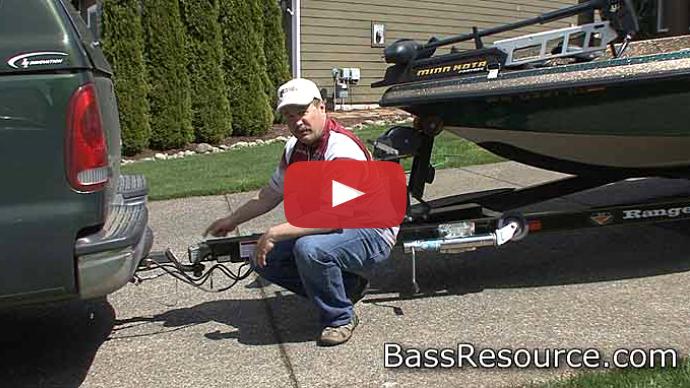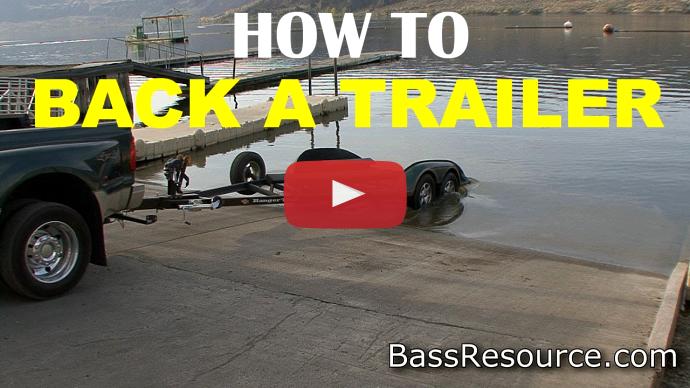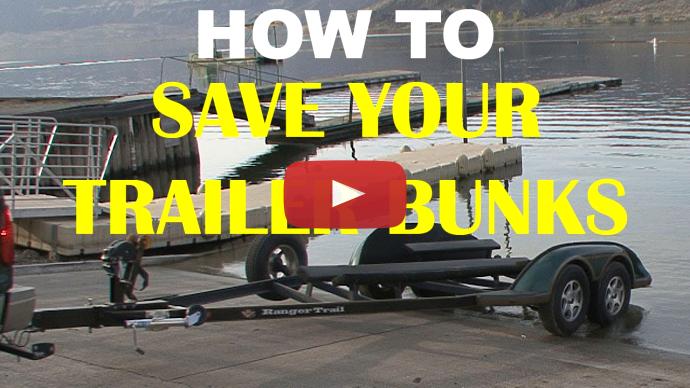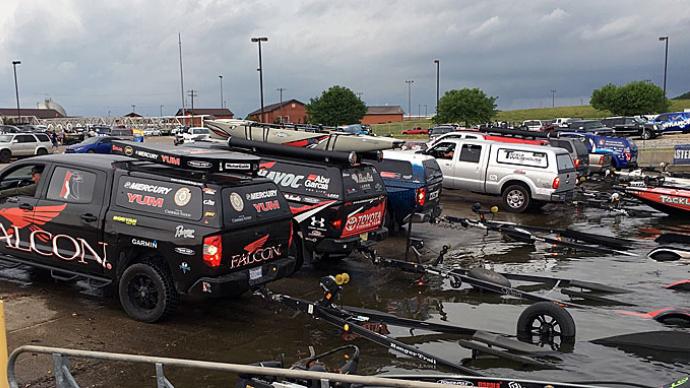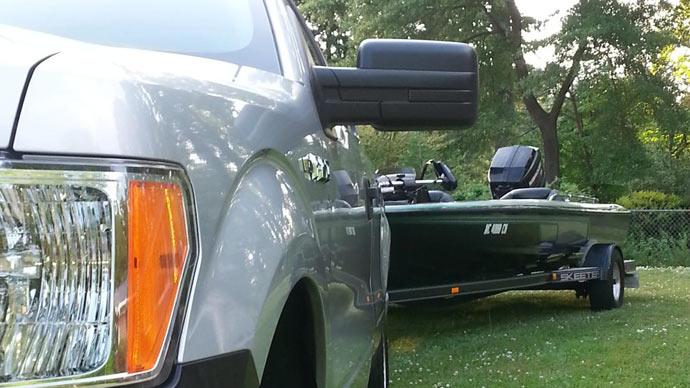Hey folks, Glenn May here with BassResource.com. And today I want to talk to you about trailer tires. Now I know it's not a very glamorous thing to talk about when it comes to bass fishing, but trust me if you're have problems getting to or from the lake that's going to ruin your whole day of fishing. So today I want to give you a couple of tips that's going to make sure you get peak performance out of your tires and that you get your money's worth. Most importantly, make sure that you don't have any problems travelling up and down the highway.
The number one thing I hear a lot on the forums and on our Facebook page is people talking about blowouts. They have a blowout going down the highway, and they just don't understand what happened. They say "Man, there's plenty of tread wear on the tire. It looks fine. There doesn't seem like there's any issues at all. And then just Boom, without warning it blew up."
I hear that story way too often. And the reality is it's because the tire wasn't properly maintained. Guys, tread wear has nothing to do with how good the tire is. It has nothing with that at all when it comes to trailers. I'm sorry, but you can't do the same thing like you do on your car or truck, the reason being tires have a shelf life. They last four to seven years, depending on the environment that they're in. The rubber gets old, gets brittle, the sidewalls wear out and you get a blowout.
If you live, let's say for example, in a sunny environment and you keep that boat stored outside all the time, then the shelf life is going to be more towards the four year span. Whereas, if you keep the boat inside the garage all the time and if it's cloudy and rainy a lot, then you can push it more towards the seven year span. You see rubber ages. It gets old, it gets brittle, the sidewalls get thin, wear out and you won't see that. You'll still have plenty of tread wear left. But the age of the tire is what you want to go off of.
Now how do you know how old the tire is? Well, you just look at the receipt when you bought it, right? No. That's not going to work. Sometimes tires sit in warehouse for a year or more before it even gets put on your trailer. So the only way to do it is to look on the sidewall. And you'll see a D-O-T on it. And right next to it you'll see a four digit number. The first two digits are the week of the year, and the second two digits is the year it was manufactured. That's the only way you can tell. The week and then the year, and you count out to how many years it's going to be, depending on your environment.
I live in a cloudy environment, rain. I keep my boat inside all of the time so I push it more towards the seven year mark. But say, for example, you live down in Georgia, Florida, or what have you, Texas. Well you want to look at about every four years.
Now another thing that you want to do is make sure that it's properly inflated. I hear this often too. If it says 50 psi on the sidewalls put 50 psi in it. I hear some people say "Oh, look I put in about 45 because going down the highway then it'll warm up and it'll inflate up to that 50." No. That's not going to work.
The tire manufacturers know how much the air increases and the pressure increases and decreases, depending on road and conditions and they determine the amount of psi that they put on the sidewall is the optimal amount to put it at. When you put it below that you're under inflating your tires. You're going to wear them out quicker. The same thing with over inflating.
You can look at your tire tread to look at the wear patterns. See if it's wearing more on the inside or the outside or more in the center than it is on the outside. If you see that, something's wrong. Something is wrong with your trailer, your axles aren't aligned right. Something's wrong with the bearings or something is up. But you shouldn't have uneven tire wear on your trailer.
Anyway, that's about it folks. Make sure you change your tires often. Look at that date. If you haven't looked at it lately go back out there right now, and look at that four digit number. See what that date is and see if you need to change those tires. For more tips and tricks, visit BassResource.com.

